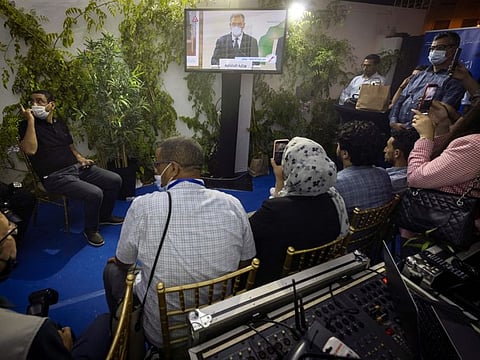Islamists routed by liberal parties in Morocco
Voters frustrated over unemployment and corruption in North African country

Rabat: Morocco’s long-dominant Islamist party suffered a crushing defeat in parliamentary elections, as voters frustrated over unemployment and corruption in the North African country threw their weight behind a party close to the king.
With nearly all ballots counted, the results pave the way for King Mohammmad VI to appoint a new prime minister and give the monarch, a compliant legislature to drive home his plan to overhaul the economy.
The Justice and Development Party (PJD) which headed the ruling coalition for a decade saw its support collapse from 125 seats in the outgoing assembly to just 12, Interior Minister Abdul Ouafi Laftit said during a press briefing following Wednesday’s polls.
It was far behind its main liberal rivals, the National Rally of Independents (RNI) and the Authenticity and Modernity Party (PAM), with 97 and 82, respectively, and the centre-right Istiqlal Party with 78 seats in the 395-seat assembly.
The RNI, which was a junior member of the governing coalition, is headed by billionaire businessman Aziz Akhannouch, described as close to the palace.
And the main opposition PAM was founded by the current royal adviser, Fouad Ali El Himma, in 2008. The Istiqlal (Independence) party is the oldest party in Morocco.
Turnout was 50.35 per cent, according to the interior minister, higher than the 43 per cent turnout at the previous legislative polls in 2016, but lower than the 53 per cent during the 2015 local elections.
But this was the first time that Morocco’s 18 million voters chose their deputies and municipal and regional representatives on the same day.
The PJD leader, Prime Minister Saad Al Deen Al Othmani, almost immediately alleged violations, telling reporters that voting records were withheld from political parties’ candidates, “especially PJD candidates,” in many constituencies and provinces.
Barring “few, very isolated cases involving a limited number of polling stations” the voting process was normal throughout the kingdom, the Interior Ministry said.
Under Moroccan law, no party can win more than 50% of the seats, making coalitions inevitable. The voter turnout was 50.3% versus 42% in 2016, he said.









